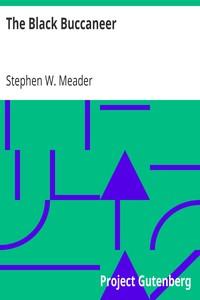Read this ebook for free! No credit card needed, absolutely nothing to pay.
Words: 62826 in 18 pages
This is an ebook sharing website. You can read the uploaded ebooks for free here. No credit cards needed, nothing to pay. If you want to own a digital copy of the ebook, or want to read offline with your favorite ebook-reader, then you can choose to buy and download the ebook.


: Richard II Makers of History by Abbott Jacob - Richard II King of England 1367-1400; Great Britain History Richard II 1377-1399
, but they are far more likely to be false. It was the custom in ancient times, and it still remains the custom among many ignorant and barbarous nations, to put persons to torture in order to compel them to confess crimes of which they are suspected, or to reveal the names of their accomplices, but nothing can be more cruel or unjust than such a practice as this. Most men, in such cases, are so maddened with their agony and terror that they will say any thing whatever that they think will induce their tormentors to put an end to their sufferings.
The common people could not often resist the acts of oppression which they suffered from their rulers, for they had no power, and they could not combine together extensively enough to create a power, and so they were easily kept in subjection.
"This is my title to my estate," said he. "Your majesty will remember that William of Normandy did not conquer this realm for himself alone."
At another time a king wished to send two of his earls out of the country on some military expedition where they did not wish to go. They accordingly declined the undertaking.
The nobles also often formed extensive and powerful combinations among each other against the king, and in such cases they were almost always successful in bringing him to submit to their demands.
QUARRELS.
A.D. 1327
In the days of the predecessors of King Richard the Second, notwithstanding the claim made by the kings of a right on their part to reign on account of the influence exercised by their government in promoting law and order throughout the community, the country was really kept in a continual state of turmoil by the quarrels which the different parties concerned in this government were engaged in with each other and with surrounding nations. These quarrels were of various kinds.
From some one or other of these several causes, the kingdom of England, in the time of Richard's predecessors, was seldom at peace. Some great quarrel or other was continually going on. There was a great deal of difficulty during the reigns that immediately preceded that of Richard the Second between the kings and the Pope. The Pope, as has already been remarked, was considered the head of the whole Christian Church, and he claimed rights in respect to the appointment of the archbishops, and bishops, and other ecclesiastics in England, and in respect to the government and control of the monasteries, and the abbeys, and to the appropriation and expenditure of the revenues of the Church, which sometimes interfered very seriously with the views and designs of the king. Hence there arose continual disputes and quarrels. The Pope never came himself to England, but he often sent a grand embassador, called a legate, who traveled with great pomp and parade, and with many attendants, and assumed in all his doings a most lofty and superior air. In the contests in which these legates were engaged with the kings, the legates almost always came off conquerors through the immense influence which the Pope exercised over the consciences and religious fears of the mass of the people.
Sometimes the visits of the legates and their proceedings among the people led to open broils. At one time, for instance, the legate was at Oxford, where the great University, now so renowned throughout the world, already existed. He was lodged at an abbey there, and some of the scholars of the University wishing to pay their respects to him, as they said, went in a body to the gates of the abbey and demanded admission; but the porter kept them back and refused to let them in. Upon this a great noise and tumult arose, the students pressing against the gates to get in, and the porter, assisted by the legate's men, whom he called to his assistance, resisting them.
In the course of the fray one or two of the students succeeded in forcing their way in as far as to the kitchen of the abbey, and there one of them called upon a cook to help them. But the cook, instead of helping them, dipped out a ladle full of hot broth from a kettle and threw it into the student's face. Whereupon the other students cried out, as the ancient chronicler relates it, "What meane we to suffer this villanie," and, taking an arrow, he set it in his bow, having caught up these weapons in the beginning of the fray, and let it fly at the cook, and killed him on the spot.
This, of course, greatly increased the excitement. More students came in, and so great was the tumult and confusion that the legate was in terror for his life, and he fled and concealed himself in the belfry of the abbey. After lying in this place of concealment for some time, until the tumult was in some measure appeased, he crept out secretly, fled across the Thames, and then, mounting a horse, made the best of his way to London.
Free books android app tbrJar TBR JAR Read Free books online gutenberg
More posts by @FreeBooks

: The Black Buccaneer by Meader Stephen W Stephen Warren - Adventure stories; Pirates Juvenile fiction; Bonnet Stede -1718 Juvenile fiction; Buccaneers Juvenile fiction


: Harper's Young People March 23 1880 An Illustrated Weekly by Various - Children's periodicals American Harper's Young People





